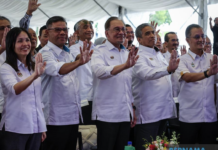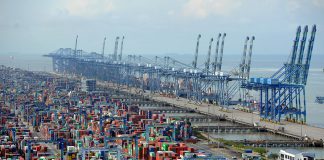In his first phone conversation with United States Secretary of State Antony Blinken, China’s senior diplomat, Yang Jiechi, urged Washington to work with Beijing to focus on cooperation and manage differences while reiterating the country’s strong resolve to safeguard its sovereignty, security and development interests.
The phone conversation on Saturday is the first official high-level contact between China and the U.S. since the new U.S. administration of President Joe Biden took office on Jan 20. It demonstrates the inclination of the world’s two largest economies to resume normal diplomatic engagement, observers said. The goal is to advance their relations which have deteriorated in recent years, though tremendous uncertainties still remain, they said.
Yang, a member of the Political Bureau of the Communist Party of China Central Committee and director of the Office of the Foreign Affairs Commission of the CPC Central Committee, called for promoting healthy and stable development of bilateral ties by upholding the spirit of nonconflict, nonconfrontation, mutual respect and win-win cooperation.
He emphasized that both nations should respect each other’s core interests, as well as political systems and developmental paths of their own choosing. He said that China will firmly continue walking along the path of socialism with Chinese characteristics and that no one can stop the great rejuvenation of the Chinese nation.
Yang highlighted several major sources of continued tensions between the two countries, including the Taiwan question, which he described as a “most important” and “most sensitive” problem in China-U.S. relations that matters to China’s sovereignty and territorial integrity.
He urged Washington to strictly abide by the one-China policy and the three China-U.S. joint communiques, which constitute the cornerstone of China-U.S. relations. In the documents, Washington recognizes the government of the People’s Republic of China as the sole legal government of China. That should stop any form of official exchange or military contact with Taiwan, which is a part of Chinese territory.
The Taiwan question serves as one of the contributing factors to souring China-U.S. relations. During former U.S. president Donald Trump’s tenure, Washington moved closer to Taiwan with a slew of moves, including high-level official visits, arms sales to the island and lifting of restrictions on interactions.
On Thursday, the U.S. Navy sent a guided-missile destroyer through the Taiwan Straits, the first time a U.S. warship has gone through the waterway during the Biden administration. Beijing expressed strong opposition to the U.S.’ provocative action.
Blinken reiterated the U.S. commitment to the one-China policy and the three China-U.S. joint communiques, saying the U.S. stance on that has not changed. He said Washington is willing to work with Beijing to develop a stable and constructive bilateral relationship.
During Saturday’s phone talks, Yang also warned the U.S. not to interfere with the country’s internal affairs, including those relating to Hong Kong and the Xinjiang Uygur and Tibet autonomous regions.
Speaking on international affairs, Yang said it is the consensus of the international community that all countries should safeguard the international system with the United Nations at its core. The international order should be based on international law, and the basic norms of international relations in line with the purposes and principles of the UN Charter, he added.
Yang urged the U.S. to play a constructive role in promoting peace and stability in the Asia-Pacific region.
The phone talk came after Biden delivered a speech about U.S. foreign policy to U.S. State Department employees on Thursday, in which he described China as the U.S.’ “most serious competitor” and outlined plans to confront Beijing’s “attack on human rights, intellectual property and global governance”.
Be rational, pragmatic
Analysts said China and U.S. need to be rational and pragmatic in dealing with their relations to allow cooperation to prevail over competitiveness to benefit the two nations and the world.
David Lampton, a senior fellow at the Foreign Policy Institute and professor emeritus of China studies at Johns Hopkins University, said Beijing and Washington need to develop crisis management mechanisms to prevent their relations from worsening.
“Not only could conditions in the Taiwan Straits rapidly escalate, but the Korean Peninsula could, the South China Sea could, even the East China Sea. So I think we need to redouble our efforts to establish crisis management mechanisms (and) do so sooner rather than later,” Lampton said at a recent online dialogue organized by the Carter Center and the Chinese People’s Association for Peace and Disarmament.
Daniel Wright, president and CEO of GreenPoint Group, an international consulting company, called for an increase of people-to-people exchanges between the two countries.
“We must protect and advance the flow of people. As the U.S.-China bilateral relationship appears to become more competitive and, in some areas, more contentious, there will be pressure for this space to tighten,” Wright said. “We will need to choose ‘strategic oases’ in our relationship, areas that can promote understanding and that set a floor in our relationship.”
There have also been calls recently for Washington to adjust its strategy and build an alliance-and partnership-based coalition to address China’s development.
But French President Emmanuel Macron has said the European Union should not gang up on China with the U.S. even if it stands closer to Washington by virtue of shared values, according to a report carried by Politico on Thursday.
















